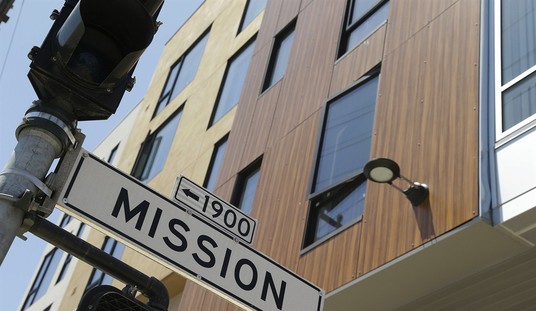Very curious. Just one week ago, Rasmussen found that 63 percent think the U.S. should leave the situation alone versus just 22 percent who think we should be more directly involved. Now this:
Fifty-six percent of Americans say they would favor the U.S. and other allied countries establishing a “no-fly zone” in Libya, with four in ten opposed. The move would allow U.S. aircraft or missiles to shoot down Libyan airplanes and attack Libyan airbases in order prevent the country’s embattled leader, Moammar Gadhafi, from using his air force to attack rebel troops…
“The no-fly zone wins support from Democrats and Republicans alike, with virtually no partisan differences. That’s rare in politics these days,” says CNN Polling Director Keating Holland. “A gender gap does exist though, which is typical for questions on military action. More than sixty percent of men favor a no-fly zone, compared to 50 percent of women.”…
According to the poll, three-quarters of Americans say that international organizations or allied countries should take the lead role on Libya, with only 23 percent saying the U.S. should be in the driver’s seat when it comes to Libya.
How’d we get from 63 percent against to 56 percent in favor? Four possibilities. One: Different samples. Rasmussen uses likely voters whereas CNN polled adults, but I’m not sure why that would produce starkly different results on this question. Two: Rasmussen’s question about U.S. involvement was less specific than CNN’s focus on a no-fly zone. Even in CNN’s poll, 76 percent opposed putting any boots on the ground; maybe that’s what Rasmussen’s respondents feared he had in mind. Three: Conversely, CNN’s question about a no-fly zone emphasized an international effort (“the U.S. and other countries”) whereas Rasmussen stressed U.S. involvement specifically. Maybe CNN’s respondents were led to believe that America’s role in enforcing a NFZ would be minor, which in turn made the idea more agreeable. Four: Changing facts on the ground. When Ras’s poll was taken, momentum was still with the rebels. A week later, Qaddafi has retaken several cities and is steaming towards Benghazi with rebel morale crumbling all the way. Americans may simply think the no-fly zone is more urgently needed now than they did previously.
The Arab League finally formally endorsed a no-fly zone over the weekend, the timing of which speaks volumes. Just as Obama and European leaders keep dithering with marshmallow promises about “tightening the noose,” the Arab League waited until Qaddafi started steamrolling the opposition before backing an increasingly unlikely — and pointless — NFZ. It’s a goodwill gesture towards young Arab democrats to show they’re on the right side, not any meaningful gesture aimed at getting the west to act. If it were the latter, it would have come much sooner, when Qaddafi was on the ropes. And as Dick Lugar argued this afternoon, it would have come with a check:
On Saturday, March 12, in a consensus decision, the Arab League endorsed a no-fly zone over Libya imposed by Western nations. What was not included in the Arab League’s decision was any commitment to provide resources for the costs of a no-fly zone. Any effective no-fly zone likely would require American participation and military assets. Such an operation could cost American taxpayers millions of dollars, or more, depending on the length of time it was imposed and the depth of American commitment. The United States already incurs billions of dollars in defense costs each year stemming from security requirements in the Persian Gulf region.
Given the costs of a no-fly zone, the risks that our involvement would escalate, the uncertain reception in the Arab street of any American intervention in an Arab country, the potential for civilian deaths, the unpredictability of the endgame, the strains on our military, and other factors, it is doubtful that U.S. interests would be served by imposing a no-fly zone over Libya. If the Obama Administration is contemplating this step, however, it should begin by seeking a declaration of war against Libya that would allow for a full Congressional debate on the issue. In addition, it should ask Arab League governments and other governments advocating for a no-fly zone to pledge resources necessary to pay for such an operation.
Libyan rebels, meanwhile, are puzzled as to why the west is fiddling while the country burns. An acidic quote from one of their spokesmen: “Everyone here is puzzled as to how many casualties the international community judges to be enough for them to help. Maybe we should start committing suicide to reach the required number.” Exit question: Jackson Diehl of WaPo warns that if Qaddafi wins, it could demoralize the entire Arab democracy movement in the region. Sad to say, but could that actually be one of the reasons for western dithering? Sacrificing Mubarak is one thing, but sacrificing a key U.S. naval base like Bahrain or the world’s biggest oil producer in Saudi Arabia is something else entirely. As repulsive as the calculation is, maybe they figure that if Qaddafi wins, it’ll restore a rough stability to the region. Democrats will still have Egypt as a source of inspiration and autocrats will have Qaddafi. A reptilian assessment, but that’s foreign policy for you.








Join the conversation as a VIP Member